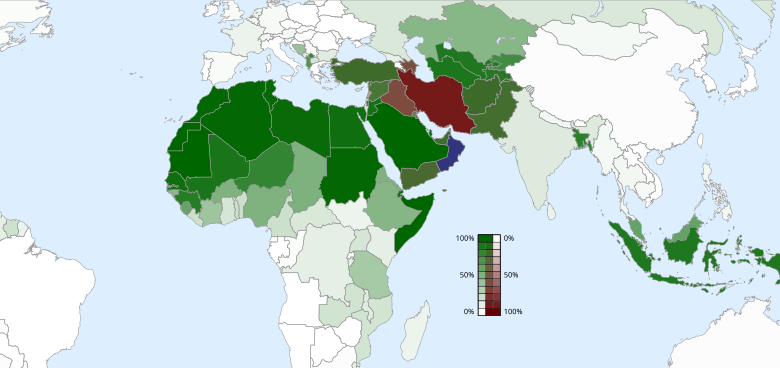
Introduction
Halal tourism has gained popularity as more destinations adapt to meet the needs of Muslim travelers seeking experiences aligned with Islamic values. In Muslim-majority countries, Halal tourism is integrated seamlessly into the culture, providing a welcoming atmosphere with facilities and services that make it easy to uphold religious practices. Here’s what to expect when visiting a Muslim-majority country as a Halal-conscious traveler, from food options to prayer facilities and family-friendly activities.
1. Abundant Halal-Certified Food
- What to Expect: In Muslim-majority countries, Halal-certified food is widely available, with most restaurants, street vendors, and even hotel dining options adhering to Halal standards.
- Local Cuisines: Travelers can look forward to trying traditional dishes that are both delicious and Halal, like biryani in Pakistan, kebabs in Turkey, or nasi lemak in Malaysia.
- International Chains: Major cities often have Halal-certified branches of popular international food chains, making it easy to find familiar options.
2. Access to Prayer Facilities
- What to Expect: Mosques and prayer spaces are plentiful in Muslim-majority countries, with prayer rooms available in malls, airports, public places, and even some restaurants and hotels.
- Call to Prayer: In many places, the call to prayer (Adhan) can be heard five times a day, which provides a comforting reminder for Muslim travelers to observe prayer times.
- Female Prayer Areas: Many mosques in these countries have dedicated prayer areas for women, making it convenient for families and women travelers to pray in a comfortable setting.
3. Modest Dress Culture
- What to Expect: In many Muslim-majority countries, modest dress is both a cultural norm and a way to show respect for local traditions. Visitors are often encouraged to dress modestly, especially in religious or conservative areas.
- Dress Guidelines: Generally, covering shoulders and knees is appreciated, especially when visiting mosques or historical sites. Local attire, like abayas or kaftans, can also be worn by tourists to blend in comfortably.
- Swimming Options: In Halal-friendly resorts, gender-segregated pools and private beaches are available, allowing both men and women to swim and relax comfortably.
4. Alcohol-Free Environments
- What to Expect: Alcohol consumption is limited or restricted in many Muslim-majority countries. In some places, alcohol is only available in licensed hotels and restaurants, while in others, it is entirely prohibited.
- Halal Hotels and Resorts: There are many Halal-certified hotels and resorts where alcohol is not served, creating a family-friendly and alcohol-free environment ideal for Muslim travelers.
- Non-Alcoholic Options: Alcohol-free drinks, mocktails, and locally produced juices are commonly available and widely enjoyed, making it easy to relax without compromising on values.
5. Cultural and Religious Sites
- What to Expect: Muslim-majority countries often have a wealth of cultural and religious landmarks, including stunning mosques, Islamic museums, and historical sites reflecting Islamic heritage.
- Popular Destinations: Travelers can explore sites like the Blue Mosque in Istanbul, the Grand Mosque in Abu Dhabi, or the ancient city of Fez in Morocco. These destinations provide insight into the rich history and artistry of Islamic culture.
- Respectful Tourism: Modest attire and respectful behavior are encouraged when visiting religious sites, as these places hold deep significance for the local Muslim community.
6. Family-Friendly Environments
- What to Expect: Muslim-majority countries tend to be family-oriented, and many attractions, restaurants, and accommodations are designed with family comfort in mind.
- Entertainment for All Ages: Family-friendly activities, such as theme parks, historical tours, and educational museums, are readily available, ensuring a welcoming atmosphere for travelers of all ages.
- Amenities for Families: Many hotels offer larger rooms, connecting suites, and kid-friendly facilities, along with designated areas for women and families at beaches and pools.
7. Respect for Religious Practices
- What to Expect: In Muslim-majority countries, Friday is often a day of rest and worship, with some businesses closing or adjusting hours for the Friday prayer. Ramadan is also observed widely, affecting daily schedules.
- Ramadan Adjustments: During Ramadan, non-Muslim travelers are often encouraged to refrain from eating or drinking in public during daylight hours, out of respect for those fasting.
- Festivities: Travelers who visit during Eid celebrations or Ramadan will experience local traditions firsthand, such as festive feasts and community gatherings, making for a culturally immersive trip.
8. Safety and Hospitality
- What to Expect: Muslim-majority countries are known for their warm hospitality, as treating guests with kindness and respect is deeply embedded in Islamic culture. Muslim travelers often find that locals are eager to assist and welcome them.
- Community Atmosphere: In many places, the sense of community and brotherhood is strong, and visitors are often treated with warmth and generosity.
- Safety Tips: Muslim-majority countries generally maintain a respectful and safe environment, but travelers should always observe local customs and stay informed about any specific regional advisories.
Conclusion
Traveling to a Muslim-majority country offers a unique and comfortable experience for Halal-conscious travelers. From readily available Halal food to family-friendly entertainment and deeply cultural experiences, these destinations make it easy to enjoy a vacation that aligns with Islamic values. Embracing the local customs, cuisine, and hospitality will enrich your journey and help you appreciate the beauty of Halal tourism in its truest form.



